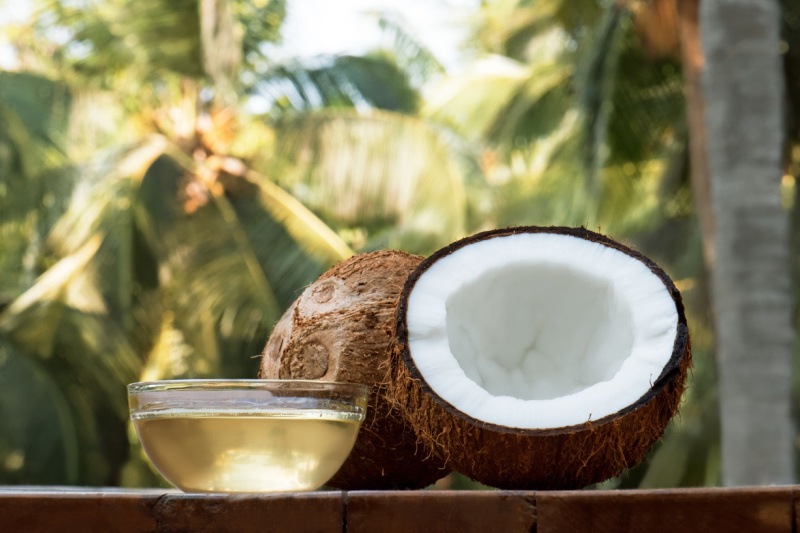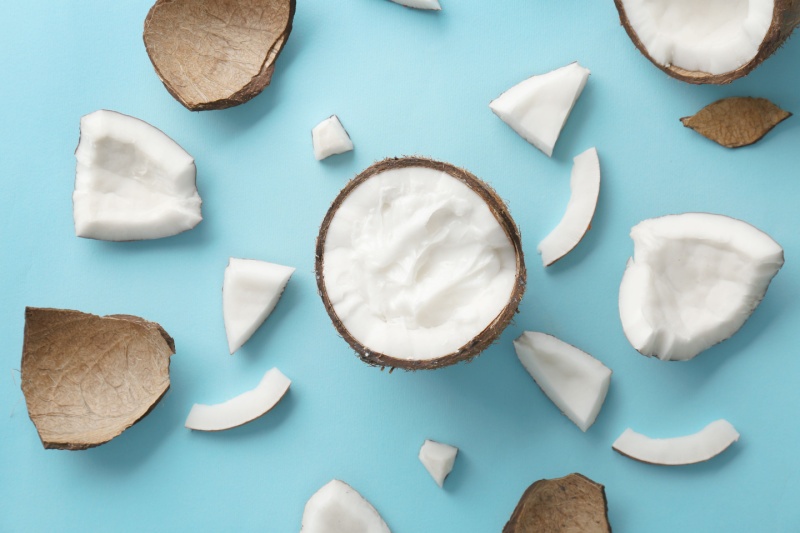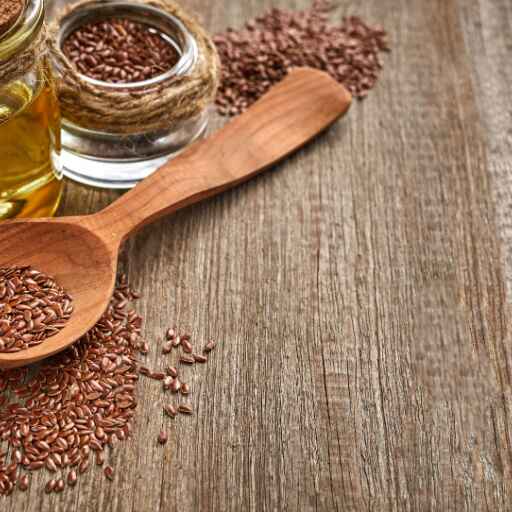From their oil to the refreshing water inside, coconuts have rightfully earned their reputation as a nutritional treasure. They offer several nutritional and medicinal properties that have been cherished for centuries around the world.
What you need to know:
- What is a coconut?
- Exploring the different parts of a coconut
- Nutritional value of coconut
- The amazing health benefits of coconut
What is a coconut?
 Coconuts, scientifically known as Cocos Nucifera, are actually drupes, a fruit with a hard outer layer. They are famous for adding a tropical flavor to dishes like rice bowls and smoothies.
Coconuts, scientifically known as Cocos Nucifera, are actually drupes, a fruit with a hard outer layer. They are famous for adding a tropical flavor to dishes like rice bowls and smoothies.
The outermost layer of the coconut, which is hard and green, is the exocarp. The next layer is the mesocarp, which is brown, hairy and husky. Once you open up the seed, you get to the coconut meat, known as kernel and coconut water.
Coconuts can be found in mostly warm and tropical climates worldwide, including India, Southeast Asia and parts of Africa. They are versatile fruits used in several industries to make products like coconut oil, milk and cream.
Exploring the different parts of a coconut
Here are the different parts of a coconut that you can use to improve your overall health:
Coconut water: A natural beverage rich in electrolytes
Coconut water is celebrated as a naturally hydrating drink, teeming with electrolytes like potassium, magnesium, and sodium. It is an excellent choice for hydration after physical activities or during hot weather, providing a healthier alternative to sugary sports drinks.
Coconut meat: A provider of healthy fats and fiber
The white meat inside a coconut is delicious and packed with health benefits. It is rich in medium-chain triglycerides (MCTs), healthy fats that can improve your metabolism and provide a quick energy source. Coconut meat is also rich in dietary fiber, improving your digestive health.
Coconut oil: A multipurpose resource for cooking and more
Coconut oil’s high smoke point (the temperature at which oils emit smoke) makes it ideal for cooking at high temperatures. Nutritionally, it is rich in saturated fats like medium-chain triglycerides (MCTs) that help burn excess fat. It also features antimicrobial properties and can even make you feel satiated. Coconut oil is also used in natural beauty products for its moisturizing properties.
Nutritional value of a coconut
Here is a detailed list of the nutritional value of 100 grams of raw and dried coconut:
| Raw coconut | Dried coconut | |
| Calories | 354 | 660 |
| Protein | 3 grams | 7 grams |
| Fat | 9 grams | 26 grams |
| Carbohydrate | 15 grams | 24 grams |
| Manganese | 65% of the daily value | 119% of the daily value |
| Copper | 48% of the daily value | 88% of the daily value |
| Iron | 14% of daily value | 18% of the daily value |
While a coconut may have a lot of fat, it also has medium-chain triglycerides (MCTs), a type of fat found primarily in coconut oil. MCTs are very easily transported and absorbed by your stomach and the intestines. MCTs can be consumed if you want an instant source of energy, or they can be converted into ketones (a secondary source of energy when you eat less carbs). In addition, ketones can reduce inflammation and increase your focus and energy levels. Coconut water calories for 245 grams is just 44 Kcal, which is why you should drink coconut water at least 4 times a week.
The 4 amazing health benefits of coconut
 Coconut health benefits are plenty. Incorporate this fruit into your diet to reap the following advantages –
Coconut health benefits are plenty. Incorporate this fruit into your diet to reap the following advantages –
Promotes heart health
The presence of lauric acid, an antioxidant in coconut milk, can help maintain healthy (HDL) cholesterol levels, which can further prevent strokes and heart complications. However, coconut oil can also increase your LDL cholesterol levels, leading to an increased risk of heart conditions. So, while you can consume coconut oil in small amounts, use more olive oil, vegetable oil, or canola oil, which contains healthy fats.
Supports weight management
Just add 2-3 tablespoons of coconut milk to yogurt or oatmeal to reap the benefits of coconut as a calorie booster for those looking to gain weight. But, the MCTs in the fruit can also satiate your appetite and promote fat burning, thus helping you manage your weight. So, add coconut to your diet accordingly.
Regulates blood sugar
Coconuts are rich in fiber and fat and low in carb content, which can be useful to control your blood sugar levels. Its anti-inflammatory and antioxidant properties may benefit your blood sugar levels.
Improves your oral health
The medium-chain triglycerides (MCTs) in coconut meat feature antimicrobial properties that may help prevent oral complications like root canals and streps (red sore throat). While eating coconut does not replace dental hygiene, it can fight harmful bacteria in your mouth and protect it against oral infections and cavities.
While there are many health benefits to coconut oil, it is always advisable to consume it in moderation.
Stay tuned to the Activ Living Community. Keep updated with the latest health tips and trends through expert videos, podcasts, articles, and much more on nutrition, fitness, mindfulness, and lifestyle conditions like Asthma, Blood Pressure, Cholesterol, and Diabetes. Activ Living ke saath sahi sehat ki shuruaat ABHIkaro.
You may also be interested in the following blogs:
- How Does Coconut Water Help Lower High Blood Pressure? Know The Science
- 3 Health Benefits Of Cooking With Coconut Oil
Popular Searches
How to lower blood pressure | Fruits good for liver | Unhealthy foods | Ragi Benefits | Basal Metabolic Rate | Acupressure points for High Blood Pressure | Ayurvedic medicine for blood pressure | How to control cholesterol at home | Homeopathy for Asthma | Biological Age | Home remedies for TB | Natural beta blockers | Negative effects of internet | Types of walking | Blood pressure calculator | Blood sugar calculator | BMI Calculator





 1800-270-7000
1800-270-7000






